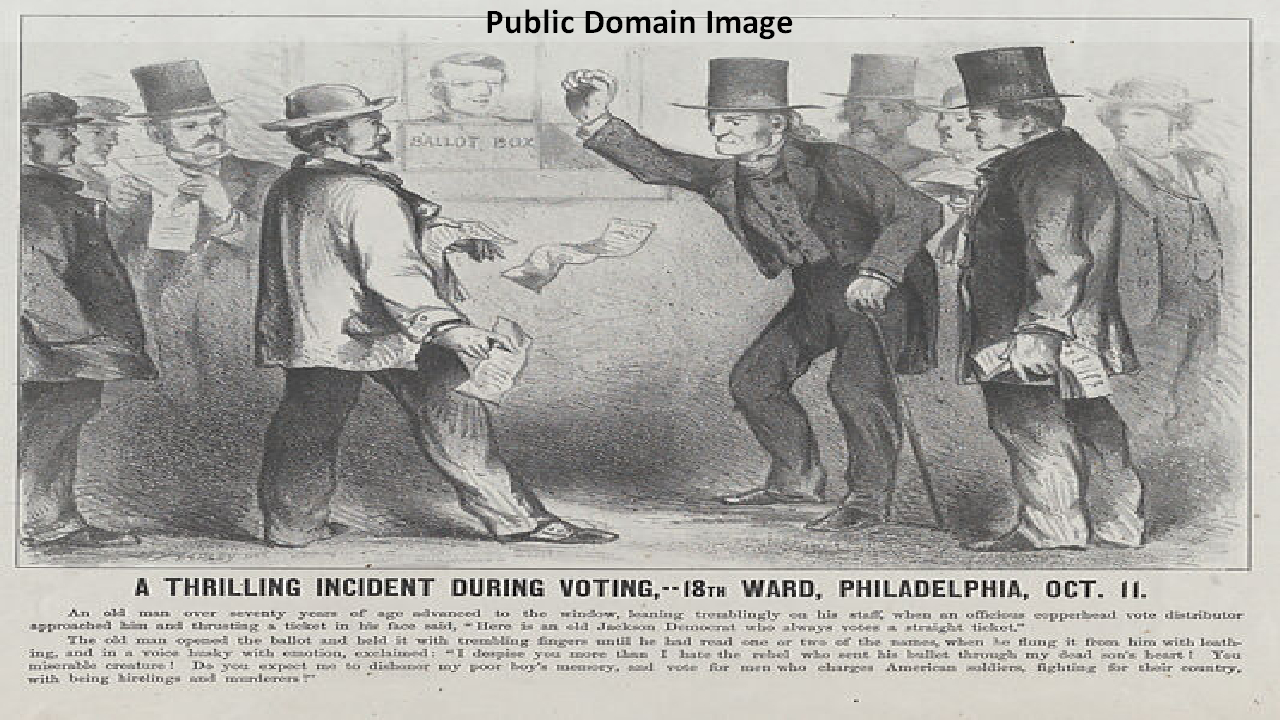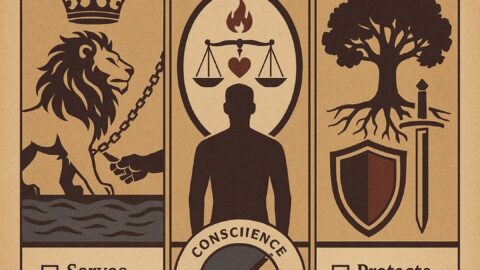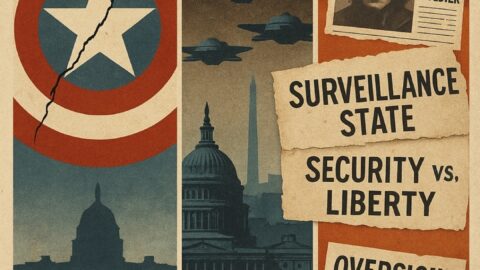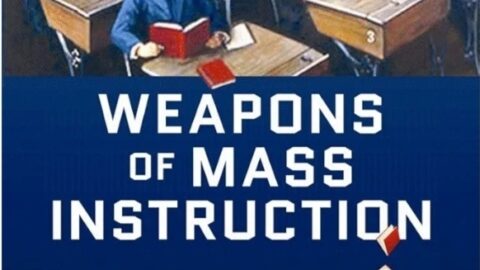The proper role of government is to protect freedom. Freedom, to our Founding Fathers, consisted of the power or ability to enjoy one’s life, liberty and property. Of these, property rights occupied a paramount status. Indeed, property rights were the kingpin or foundation stone upon which all other elements of freedom rest. The importance of property rights is reflected in the words and writings of the framers and other great men before, during, and after the founding era. Consider the words of three such great men:
- The great and chief end therefore, of men’s unity into commonwealths, and putting themselves under government, is the preservation of their property (John Locke, The True End of Civil Government, 1690)
- The moment the idea is admitted into society that property is not as sacred as the laws of God, and that there is no force of law and public justice to protect it, anarchy and tyranny commence. Property must be secured or liberty cannot exist (John Adams, Works)
- The three great rights are so bound together as to be essentially one right. To give a man his life but deny him his liberty, is to take from him all that makes his life living. To give him his liberty but take form him the property which is the fruit and badge of his liberty, is to still leave him a slave (Justice George Sutherland of the U.S. Supreme Court, in 1921)
Property and its importance in western culture as a positive force is also reflected in our language, expressions, and in words and their meaning. For instance, compare the following words pairs and their meaning:
- proper to property
- good to goods
- weal to wealth
- means (way of obtaining an object) from means (sense of wealth)
- or how about the English play on words, “he is a good man who is a man of goods”
- or the saying that to be born “of goodly parents” meant that the family had the goods, the means, to engage tutors for private “learning”
Since it is governments primary responsibility to protect property, it should not seem strange that our Founding Fathers would have planned and designed certain checks and balances into the very form or structure of government and the way it operates as a system.
One such device the founders utilized to protect property was restricting the voting franchise so that only “freeholders” (those who owned land, free and clear) could vote. For instance, in the early years of our Republic every one of the States had different property requirements, either in land or some other monetary or private property equivalent–but they all attempted, in one way or the other, to protect private property by property restrictions on the vote.
Arguments the Founders used for restricting the voting franchise to property owners included:
- Since voters were also property owners they would have a great vested interest in how government was run and operated and in keeping government fiscally restrained and responsible
- Potential voters had a built-in incentive to acquire property
- Property owners were generally seen as those who had worked hard and industriously, had exercised self-control and thrift, and acquired other virtuous character traits seen as necessary for the well-being of society.
Arguments against restricting the vote to property owners soon began to appear, however. Most of the arguments centered around the idea of fairness and equality. On the surface, it does seem unfair to restrict the right to vote to property owners–especially those affected by the legislation being considered. For instance, a friend of mine once wrote me in opposition that:
“. . . all classes of men must have their right to vote . . . Once you set the property requirement, will it not be manipulated by those who have the most property and the most influence? What about companies and railroads and farmers and ranchers who bought up huge tracks of land and leased it and rented it and so on? Shall all these be disenfranchised? Did any of the workers own their own land, for example, in the silver mines, coal mines, copper mines of Utah? It was bad enough, in some cases a real slavery. Should we have added to it, and kept it eternal by disenfranchising them? . . . How about when older folks, even prosperous folks often scale down and move into apartments and nursing homes and retirement rental communities in their old age? Are they no longer worthy citizens?“
Fairness though, is a moot point, a non-issue, since all people are equal before the law. The only thing separating a voter from a non-voter was the necessary property ownership–something that could be acquired and overcome. Moreover, it needs to be remembered that even today, with our greatly broadened voting franchise, not all people affected by legislation get the right to vote, for instance:
- Minors, or underage children don’t have the vote
- Those under guardianship, whether old or young but mentally incapable don’t have the vote
- Non-citizens, such as Immigrants, whether legal or illegal, don’t have the vote
- Convicted felons don’t have the vote
As we can see, voting is not as much a right as it is a privilege. A careful analysis of the issue will clearly show where voting is restricted in other areas as well. Because we are a republic and not a pure democracy not everyone votes on everything–it would be impractical and undesirable. Inequality was actually built into the system. Our vote on issues, instead of being a direct one on one vote is indirect.
Our vote on candidates, in many cases is also indirect. For instance, it is the electoral college who elects the president not the direct vote. Which is why Presidents of the United States can get elected without a majority of the popular vote. Neither do we vote directly on treaties, ambassadorships or the like–these are done for us indirectly through representatives.
Alexander Hamilton empathized with those wishing to broaden the voting suffrage by allowing non-property owners the vote but realized the folly inherent with allowing such. Further, in regard to fairness and equality, he understood that voters who were also property owners would be on an equal footing with all other such voters. As he wrote:
“If it were probable that every man would give his vote freely, and without influence of any kind, then, upon the true theory and genuine principles of liberty, every member of the community, however poor, should have a vote . . . But since that can hardly be expected, in persons of indigent fortunes, or such as are under the immediate dominion of others, all popular states have been obliged to establish certain qualifications, whereby, some who are suspected to have no will of their own, are excluded from voting; in order to set other individuals, whose wills may be supposed independent, more thoroughly upon a level with each other.” (Alexander Hamilton, “The Farmer Refuted”)
John Tyler summarized other dangers of giving non-property owners the vote:
“A democracy cannot exist as a permanent form of government. It can only exist until the voters discover they can vote themselves largesse from the public treasury. From that moment on, the majority always votes for the candidates promising them the most benefits from the public treasury, with the result that a democracy always collapses over a loose fiscal responsibility, always followed by a dictatorship.” (Alexander Tyler, in his 1770 book, Cycle of Democracy)
Fast forward to the present–How far has our Constitutional Federated Republic degenerated since we’ve disengaged property requirements from the voting franchise? Certainly, it cannot be argued that property rights are more secure now than then. Some politically astute or clairvoyant “experts” even predict that we are in danger of an economic, if not political crisis, in the not too far future. If we are to be wise stewards of property perhaps it’s time to reestablish property restrictions on the vote. States certainly have the constitutional ability to do so. The Founders wisely left this ability up to the States. Do they have the will?






